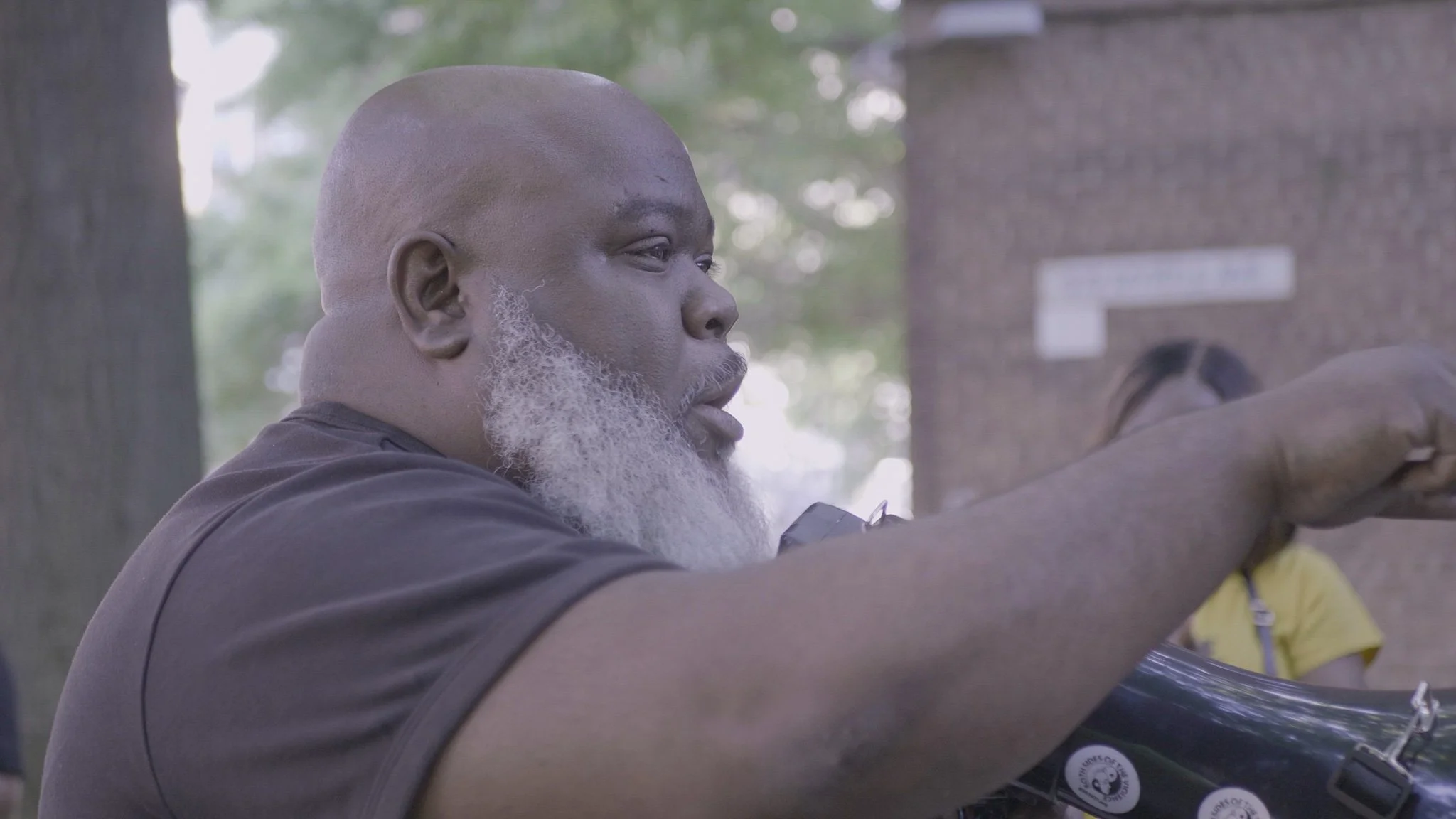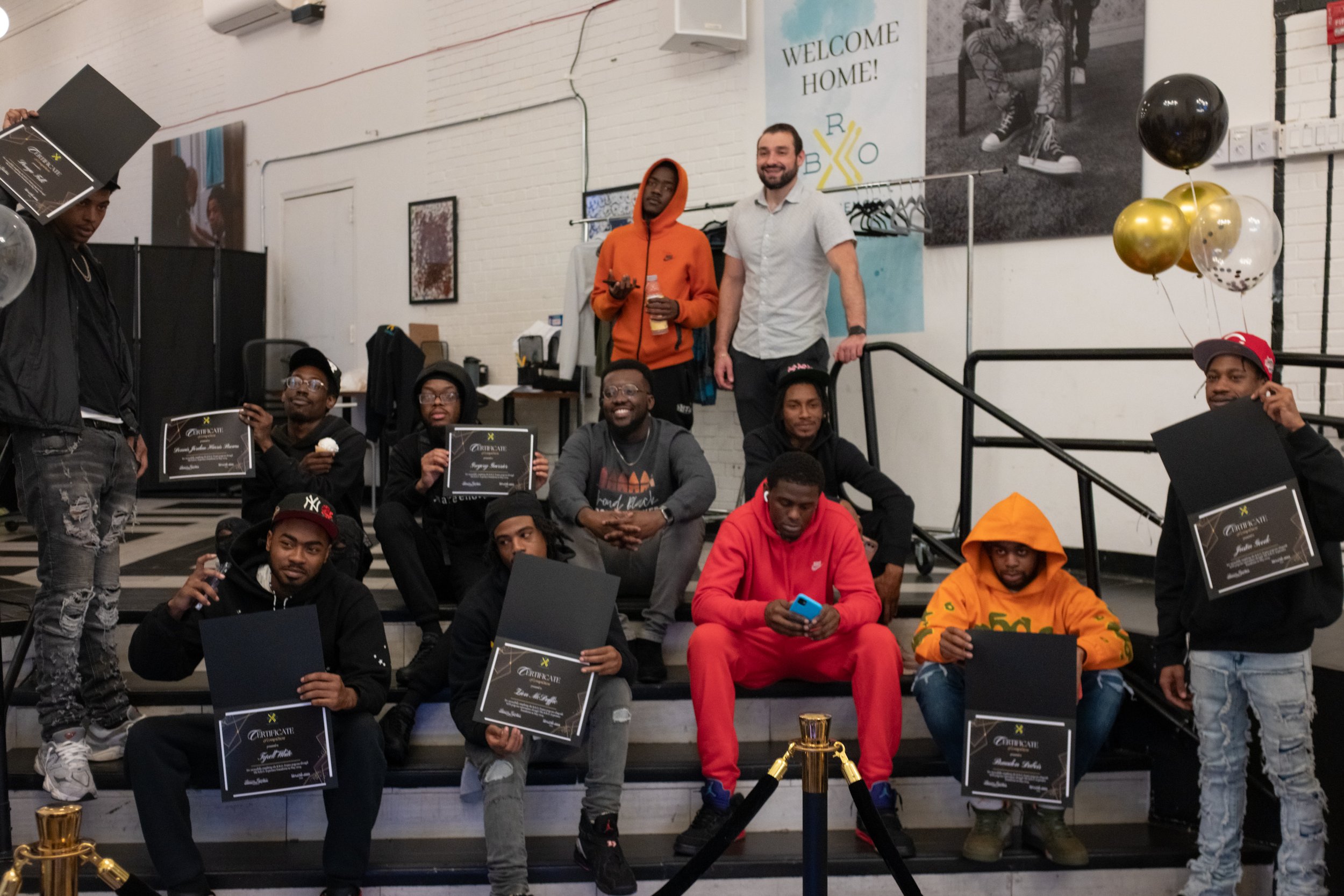Beyond the Headlines: Remembering Brandon Dubois for More Than His Past
By Barry Cooper
“You can't blame my past, I come from the trenches” –Brandon Dubois
The recent tragic death of Brandon Dubois has garnered headlines, but the coverage is troublingly one-sided. Rocco Parascandola's article for the New York Daily News focuses solely on Brandon's criminal record and the violent circumstances of his death, painting an incomplete and unfair picture of who Brandon truly was. As a society, we must look beyond the mugshots and court records to see the full humanity of individuals like Brandon Dubois.
My name is Barry Cooper, and I am the Executive Director and Founder of The B.R.O. Experience Foundation. Our mission is to support young men like Brandon by providing them with the tools and opportunities to thrive despite their pasts. Brandon Dubois was more than a 24-year-old “ex-convict.” He was an extraordinary fine art painter and drawer whose talents and potential were overshadowed by his struggles with antisocial behavior. His artwork revealed a depth and sensitivity that is rarely discussed in crime reports. Those who knew Brandon describe a young man with a profound ability to translate his emotions and experiences onto canvas, creating pieces that spoke to the complexities of his inner world.
It is essential to understand that Brandon’s run-ins with the law were part of a larger narrative of systemic failure. Our society spends billions of dollars each year to keep people incarcerated but fails to invest adequately in their rehabilitation and social-emotional support. In New York State, for instance, the average cost per inmate is nearly $115,000 annually, while funding for long-term social supports like mental health services, vocational training, and art therapy is a fraction of that amount. In New York City detention centers alone, the cost of detaining one individual reaches an astounding $556,539 annually. Imagine the transformative impact if such funding were directed towards supportive services instead.
Barry Cooper at the vigil for Brandon
Programs that offer art therapy, counseling, and vocational training are often underfunded or nonexistent, leaving individuals like Brandon without the resources they need to reintegrate successfully into society. Brandon’s antisocial tendencies were not mere character flaws; they were symptoms of deeper, unaddressed issues. If we had invested in comprehensive support systems—such as mental health services and community-based programs that foster personal development—Brandon might have had the opportunity to fully realize his potential as an artist and as a contributing member of society.
The B.R.O. Experience Foundation has been working with Brandon and other young men in our BRO Project curriculum, a partnership with Bridge Street Development Corporation and The Center for Community Alternatives that provides young men with mentorship and support to navigate their challenges. Through our work, we have seen firsthand the incredible transformations that are possible when individuals are given a second chance and the resources they need to succeed. Brandon’s case underscores the need for a paradigm shift in how we view and treat individuals with criminal records. Instead of punitive measures, we should focus on rehabilitation and reintegration, recognizing the unique talents and potential contributions each person possesses.
Communities can play a pivotal role in this transformation. By providing safe spaces for artistic expression, mentorship, and skill development, we can help individuals like Brandon channel their energies into positive endeavors. These community efforts need proper funding and support, something that is glaringly absent in the current system. Government officials often create short-term funding programs that last only a few years, spreading limited resources thinly across many needs. Sustainable, long-term investment is crucial.
It is also worth noting that Brandon was on a path to reform. His conditional release in 2022 and the end of his postrelease supervision indicated progress. However, without continuous support, even the most determined individuals can struggle. The tragedy of Brandon’s death should serve as a wake-up call to prioritize long-term support over short-term punitive measures.
In remembering Brandon Dubois, let us honor his memory by advocating for a more compassionate and holistic approach to justice. Let us acknowledge the talents and humanity of those who have been through the criminal justice system and work towards a society that values rehabilitation and reintegration over punishment and marginalization.
The narrative of Brandon Dubois is not just about a life cut short by violence; it is about the lost potential and the systemic neglect that failed to nurture a promising young artist. By shifting our focus from criminal records to personal stories, we can begin to create a more just and empathetic society. Let Brandon’s story be a catalyst for change, driving us to invest in the futures of all individuals, regardless of their pasts.
(Barry Cooper is the founder and Executive Director of The B.R.O. Experience Foundation)
Brandon and fellow graduates of The BRO Project program in May, 2024.




